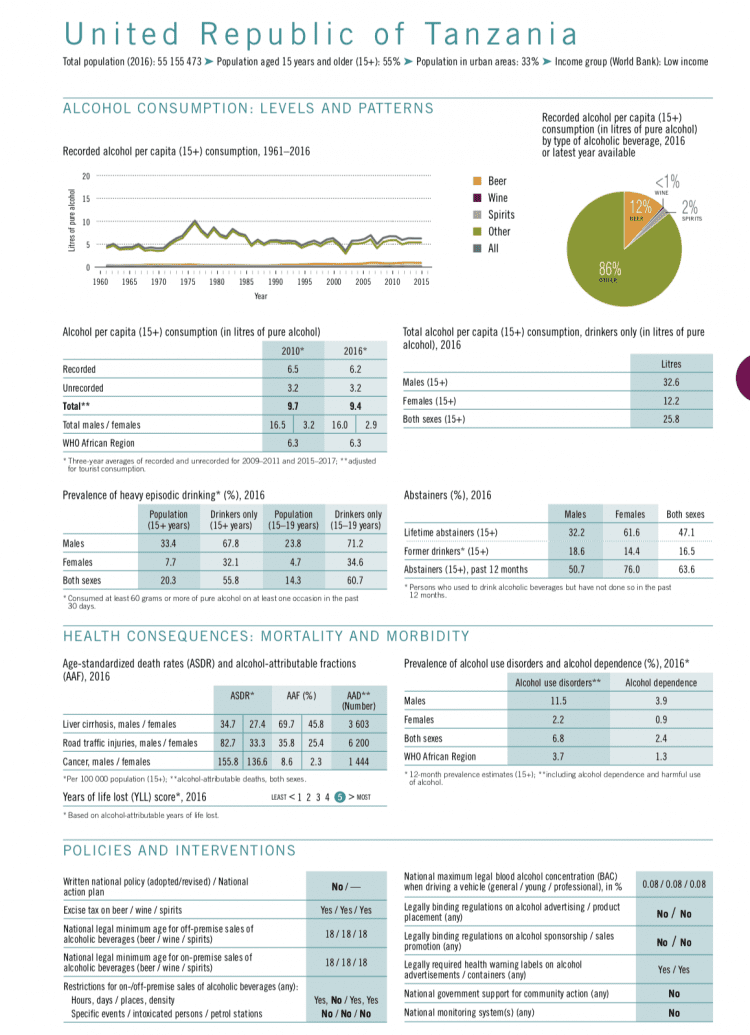Tanzania: Alcohol Fuels NCDs Epidemic
As the Tanzanian government struggles to find solutions to effectively control Non-Communicable Diseases (NCDs), health experts highlight the role of alcohol and urge alcohol policy formulation and implementation in the country.
The Tanzania Public Health Association, a partner of the Swedish IOGT-NTO Movement’s development assistance work, has warned that alcohol is increasingly fuelling the NCDs epidemic in the country. NCDs have become the biggest killer in Tanzania and alcohol use has been increasing in recent years. Alcohol is easily and widely available and children are exposed the alcohol marketing and the presence of alcohol everywhere.
The chairman of TPHA Dr Mashombo Mkamba explained the diseases alcohol causes: liver disease, cancers, cardiovascular diseases, diabetes and obesity, as well as kidney failure, to name a few. Alcohol also causes harm to others than the alcohol user themselves, such as foetal alcohol spectrum disorder, violence, road traffic injuries or accidents.
Economic, social, health costs are huge
The Tanzanian society carries a heavy burden of alcohol harm and related costs. IOGT International member organization TAAnet (Tanzania Network Against Alcohol Abuse) highlighted that alcohol-related mortality exceed deaths from HIV/ AIDS, tuberculosis and diabetes combined.
In Tanzania, almost 64% of the adult population abstains from alcohol use every year. But per capita consumption among those who do consume alcohol is very high: almost 26 liters per person, per year. And globally, Tanzania ranks among the countries with the highest rate of years of lives lost due to alcohol.
TPHA and TAAnet call for urgent government action.
To help achieve the Sustainable Development Goals, they urge the formulation and implementation of an evidence-based alcohol policy, including regulation of availability, marketing and price as well as health warning labelling.

